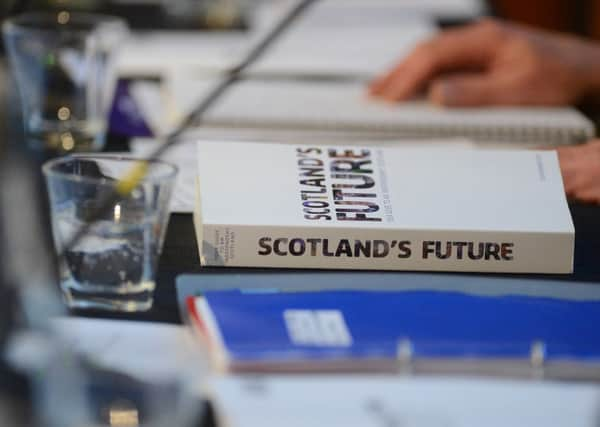Eddie Barnes: All quiet on the independence front


The latest poll on attitudes to next year’s independence referendum appears to confirm that it isn’t One Nation that will be decide the country’s fate next autumn but two.
The STV/Ipsos Mori poll, taken in the aftermath of the SNP Government’s White Paper, offered some comfort for the pro-independence campaign with support for a Yes vote rising by 3 per cent. But the pro-UK side were quick to point out that this simply brought their opponents back to where they were when the campaign began (for those who cannot remember that far back, it is 34 per cent). Of more interest, hidden underneath the top line numbers, was evidence that the country is dividing along the familiar lines of wealth and personal income. Among those certain to vote, the most deprived 20 per cent of Scots now back a Yes vote next year – by 47 per cent to 45 per cent , the poll showed. However, the most well-off 20 per cent however remain adamantly opposed – with 68 per cent saying No. The poll also found that people without a job are split evenly – 44 per cent Yes, 46 per cent No. By contrast, people in a full time job are opposed, by 57 per cent to 32 per cent .
Advertisement
Hide AdAdvertisement
Hide AdAnd the poll found that the strongest support of all for independence was among council house dwellers or those in rented accommodation – 51 per cent back a Yes, compared to 41 per cent who say No. Among owner occupiers, the variation is huge; only 26 per cent back a Yes, compared to 64 per cent who say No.
The reasons for this gap have been pored over at length by pollsters since the campaign began. Concerns about the impact of independence on the family mortgage, pensions and savings run deep among the middle classes. Hence they are inclined not to twist. But there is less need to worry about such things if you don’t have a mortgage, or savings, or a pension. For these more deprived people, the main block to a Yes vote – the question of affordability – is therefore negated.
The Yes campaign is holding out much store by this group of voters. This “missing millions” perhaps haven’t voted for some time. As a result, the campaign argues, they do not appear on pollsters’ clipboards. Support for independence is still therefore being under-estimated.
But this week’s poll shows that the bottom 20 per cent are alone in backing independence (even among lower middle earners, the No side has a ten point lead). And while the Yes side may draw comfort from the support among people in rented accommodation and those out of work, the poll also shows that these group are out-numbered three-to-one by those more sceptical homeowners and by people in work. Somehow the pro-independence side needs to persuade this middle ground too that they can risk a Yes next year. Not for nothing does the Yes side need to believe in a One Nation Scotland.